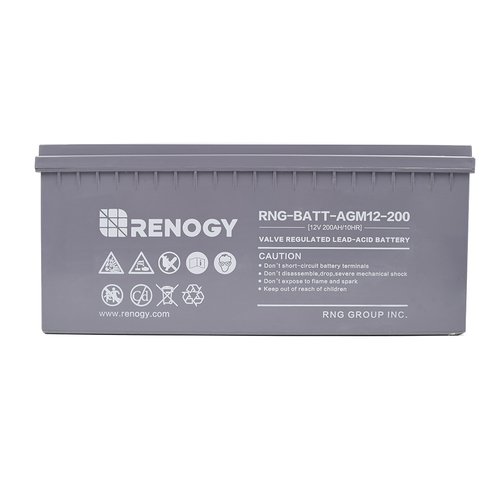When someone asks me this question, I always answer with a question of my own…
I ask them – are you going to be spending a good deal of time “off-grid?” By off-grid I’m referring to traveling and living in your RV on BLM (Bureau of Land Management) Land in the desert, in the mountains or other raw land or so-called primitive campsites without electricity? If you are, then Solar might be for you.

Most Class A’s, Class B’s and Class C RV’s usually come with a built-in generator. With a generator, you can produce your own electricity to power your lights, entertainment system, cooking appliances, air conditioning, etc. However, with the generator comes the issue of carrying enough gasoline to power your generator for a few days to a few weeks or more and the cost of gasoline today has to be considered. You also have the noise factor with a generator chugging along. This can be a pain if your goal is to get away from the hustle and bustle of everyday life to enjoy the solitude of quietness of the desert or a mountain hideaway.
You might consider solar as a complement to your generator. If you’re a van dweller, or towing a small travel trailer, more than likely, you don’t have a generator. In these cases, solar can benefit you greatly. I spend a good deal of time off-grid in my converted van. Because of this wonderful life-style I’ve chosen, I travel the country freely and rarely spend any time in an RV park with electricity and other amenities. I take advantage of free camping and BLM Land (which belongs to the Federal Government) and they let us camp there for free. When I retired and decided I wanted to be mobile and get out and explore this great country, I spent a big sum of money to purchase a rather large Class C RV. I made 2 trips in it before deciding I did not like driving that monster around the country with amenities in it that I rarely used and getting something like 9 miles to the gallon of gasoline. I sold it and bought a van and I could not be happier with my decision.
Once I became a van dweller, I had to downsize a great deal and found that becoming a minimalist wasn’t all that bad. I simply got rid of stuff I didn’t use anyway. The only electrical items I have in my van is my 12 volt DC refrigerator, a Fantastic Fan and my computer and iPad.
For my van I chose Renogy 200 Watts 12 Volts Monocrystalline Solar RV Kit Off-Grid Kit with 30A PWM LCD Charge Controller + Mounting Brackets + MC4 Connectors + Solar Cables + Cable Entry housing. Following is the link on Amazon.
https://amzn.to/2ImnddX

• This kit includes Renogy’s Adventurer 30A PWM Flush Mount Charge Controller which can charge the battery quickly and safely under almost any condition. Optimum operating current (Imp): 5.62A,Optimum operating voltage (Vmp): 17.8p
• With a Renogy 200W Monocrystalline RV Kit with Adventurer, you won’t have to wonder about whether you’re getting the most out of your system
• Monocrystalline solar cell efficiency: 18.4%; Negative grounding controller ensures the broader off grid applications and safety
• Corrosion resistant aluminum frame for extended outdoor use, allowing the panels to last for decades as well as withstand high winds (2400Pa) and snow loads (5400Pa)
I also chose the Renogy 12 Volt, deep cycle, 200 amp hour, AGM sealed battery. Following is the link on Amazon.
https://amzn.to/2KJqmCP

These items are available from Amazon and shipping is free for Prime members.
There are thin, lightweight and flexible solar panels available, but from my research and in talking with other travelers who have them, I have found that these type solar panels do not last as long as the rigid type and they are more expensive to purchase. Therefore, I made my decision to go with the traditional type and so far have not been disappointed.
I have found that the panels and battery above are more than adequate for my electrical needs.
Of course I have to have my coffee and tea, but I use a drip type coffee maker that does not require electricity and my portable stove heats the water for this in no time.
I do hope this post has been helpful to you in making your decision regarding solar for your RV.
Most of the photos in this blog are provided with the courtesy of pixabay.com.
“If you liked this post, please follow me here on Steemit. I’ll follow you back. I’ll be bringing you more good quality content in the weeks to come.”
Until next time…


